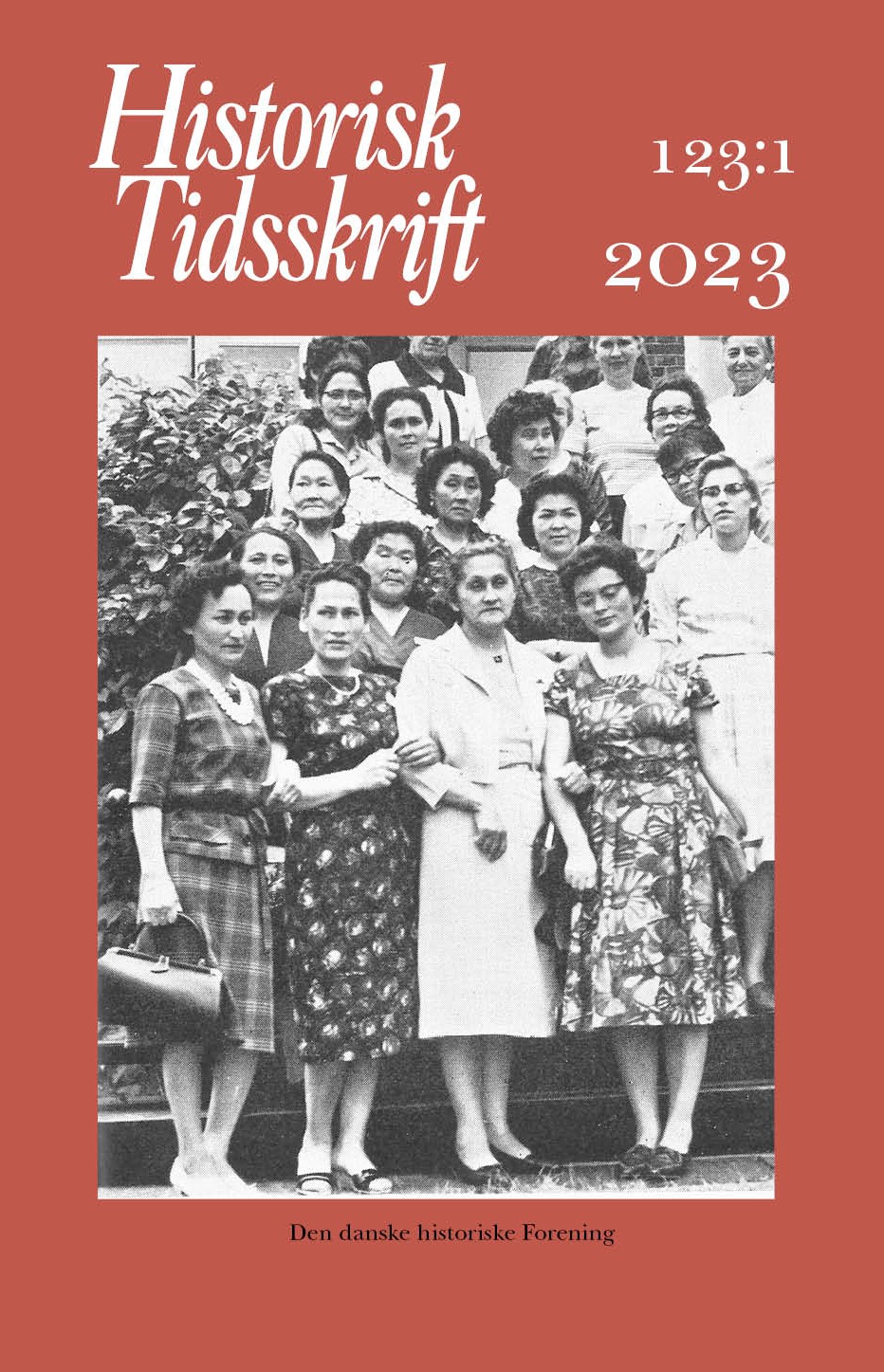Nationaldragt før nationaldragter. Mode og folkets vel i oplysningstidens debat
DOI:
https://doi.org/10.7146/ht.v123i1.138928Resumé
Enlightened Debates on National Costume in Denmark, c. 1790
In connection with broader debates of 18th century Enlightenment, also questions regarding luxury were discussed. Liberal philosophers more or less rejected older notions of luxury as sinful and attributed to it a more morally sound role in economics and society. This article deals with a debate about whether it would be preferable to create and enforce a national costume, that is a standardized national dress not governed by fashion. This would prevent luxury temptations and economic strain on both private and public finances, not least in Denmark where luxury clothing often was imported, especially from France.
The discussion combined nascent nationalism with Enlightenment visions of economic, social, cultural, and perhaps even political reform. In Denmark, it took the form of a prize essay competition in 1788. The three rewarded essays were printed in German in 1791-92 and form the basis of the present article. For slightly different reasons, none of the three prize essays could recommend such a uniform daily dress. The rule would be impossible to enforce, it would do harm against basic civil rights, and the idea did not sufficiently consider the power of fashion among people, or the benefits of a domestic luxury industry.
The Danish discussion had a forerunner in Sweden, where in 1778 a national court costume, literally referred to as national costume, was introduced by the country’s absolute ruler, King Gustav III. The concept did not outlast his reign (1771-92) for long. National costume was also discussed in North-Western Germany in the 1770-1780s as well as from 1786 onwards in the Weimar based periodical, Journal des Luxus und der Moden, and in German prize essays. These German debates were well known in contemporary Denmark, a fact that up to this day has not been much recognized in Danish research. The arguments put forward in the German discussions were very similar to those of the Danish prize essays; it also seems that the idea did not find many supporters in the German states either.
However obvious the idea of a national costume might seem to mercantilist, absolutist and culturally conservative statesmen and philosophers, it failed because it clashed with even more fundamental social and cultural trends connected with ideas of free citizenship and political and economic liberalism.
Downloads
Publiceret
Citation/Eksport
Nummer
Sektion
Licens
Ophavsret til bidrag i Historisk Tidsskrift tilhører forfatterne og Den danske historiske Forening som udgiver af Historisk Tidsskrift. For illustrationer gælder den ophavsret, som står anført i billedteksten. Ophavsretslovens almindelige bestemmelser gælder, hvilket vil sige, at ophavsretten gælder i 70 år efter forfatterens død. Bidrag i Historisk Tidsskrift må derfor, med forbehold for en ”moving wall” på tre år, frit downloades, læses, gemmes, anvendes og citeres (med kildeangivelse) i privat og videnskabelig sammenhæng, men de må ikke helt eller delvis genudgives af tredjepart, heller ikke i redigeret form, uden tilladelse fra forfatterne og Den danske historiske Forening. Henvendelse skal i så fald rettes til Historisk Tidsskrifts redaktion på histtid@hum.ku.dk.





